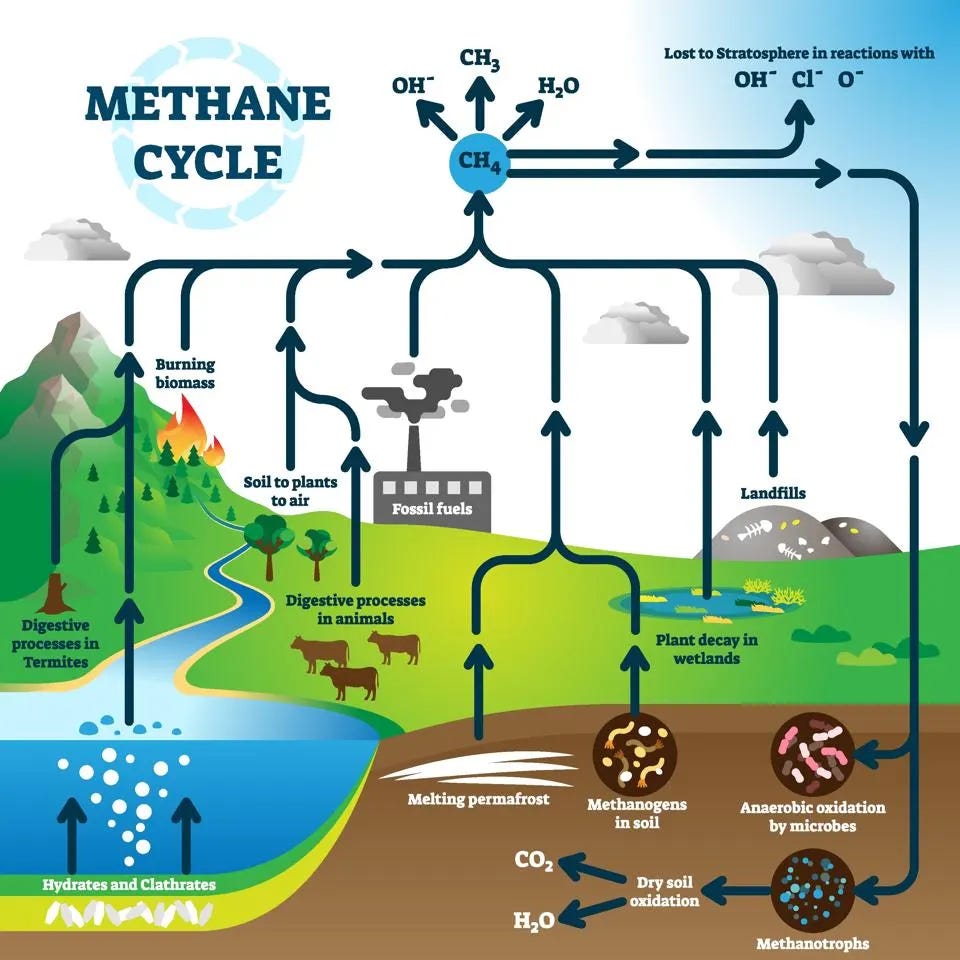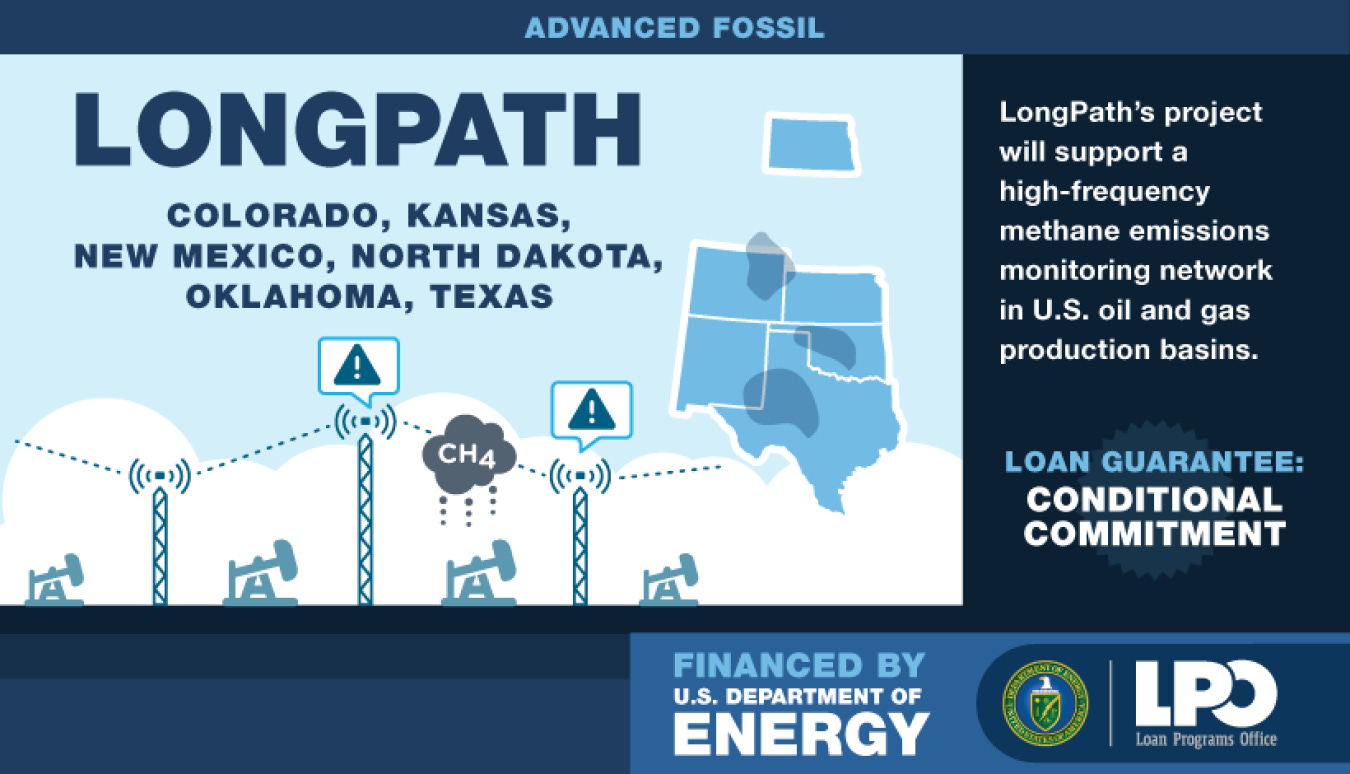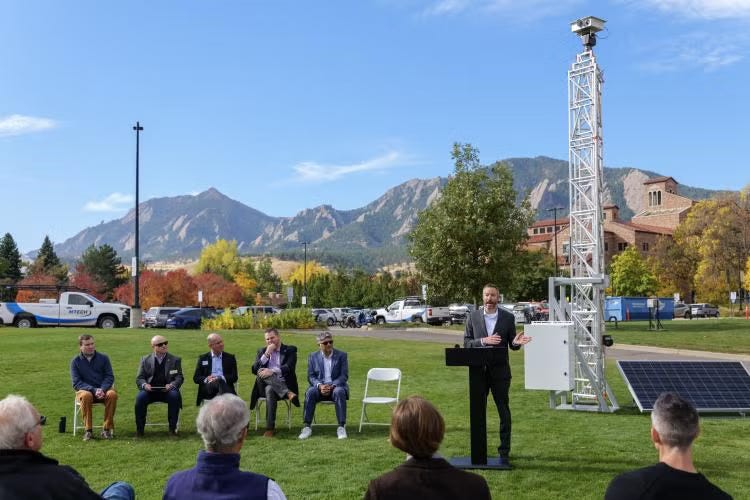Your Daily Dose of Climate Hope: January 15, 2025
New U.S. investment in methane monitoring & leak reduction!
The Biden-Harris Administration just made a historic investment to set up an American methane leak monitoring network, with the potential to substantially cut emissions of a potent greenhouse gas.
Tell Congress to sustain U.S. investment in methane monitoring & leak reduction!
Touch or scan the QR code below to take today’s action in the app and earn trees!
Or take action on the Internet – no app required!
Reasons For Hope
In October 2024, the U.S. Department of Energy Loan Programs Office finalized a $162.4 million loan guarantee to startup LongPath Technologies. LongPath will use this money to set up a pioneering methane emissions monitoring network covering the major Permian, Anadarko, and Denver-Julesburg oil and gas basins in Colorado, Kansas, New Mexico, North Dakota, Oklahoma, and Texas. The projected emissions reduction benefits - and cost savings - are immense.
“LongPath’s technology continuously identifies, localizes, and quantifies methane emissions more rapidly and at lower detection levels than conventional methods, allowing operators to mitigate leaks earlier and more often.
The LongPath Active Emissions Overwatch System could reduce greenhouse gas emissions leaks by approximately 90% compared to incumbent OGI technologies.
The company is already monitoring hundreds of square miles of oil and gas infrastructure using 50-foot towers topped with lasers that can each monitor an area of nearly 8 square miles. In addition to filling an important gap in current monitoring capabilities, LongPath’s modular systems are low-cost and can be safely and quickly installed on-site using local expertise.”
— U.S. Energy Department
“LongPath's current network has mitigated 4 billion cubic feet of emissions so far in 2024…
At full expansion under the DOE LPO loan, the number will be 80 times larger. It's a good feeling that this technology can help industry and our atmosphere at the same time.”
— LongPath CTO Greg Rieker
For context: you’ve probably heard about methane as a major contributor to climate change, the second-most impactful human-emitted greenhouse gas behind carbon dioxide. There’s a lot less methane emitted than carbon dioxide, but methane is a much more powerful greenhouse gas, so it accounts for around 30% of observed global warming. However, methane also lasts just 7 to 12 years in the atmosphere compared to centuries for CO2, so reducing methane emissions could become a big help very fast.

One of the major sources of methane emissions, causing much of the recent increase, is “fugitive emissions,” essentially leaks of methane from oil and gas infrastructure. That’s what LongPath’s monitoring network is working to track, find, and crack down on. The good news is that this is fairly “low-hanging fruit” for fighting climate change: everyone has an incentive to solve this problem, and it’s relatively cheap and easy to fix. This isn’t like CO2 emissions from burning fossil fuels; a side effect of an energy-generating process that makes money for a lot of people. No one is benefiting from methane leaks; quite the reverse, as they’re wasteful and money-losing. The methane that’s leaking is the same stuff as the natural gas that fossil fuel companies want to sell1!
This should be one climate solution that everybody can agree on! And it’s just one of many advanced energy innovation investments made possible by the Inflation Reduction Act. It’s up to the incoming Congress to determine whether vital funding like this will be sustained in upcoming budget cycles. In an uncertain political environment, enlisting vocal Congressional champions to defend specific clean energy projects is likely to be increasingly important. Your voice can help show that American voters care about sustaining strategic cleantech investments.
Tell Congress to sustain U.S. investment in methane monitoring & leak reduction!
You can sign up for our FREE Climate Hope Exists review on Eventbrite!
To clarify: natural gas is mostly methane, CH4, which when burned for energy produces CO2, but just releasing methane is way worse for the climate than burning the gas. As we discussed above, methane is a considerably more potent greenhouse gas than CO2.








